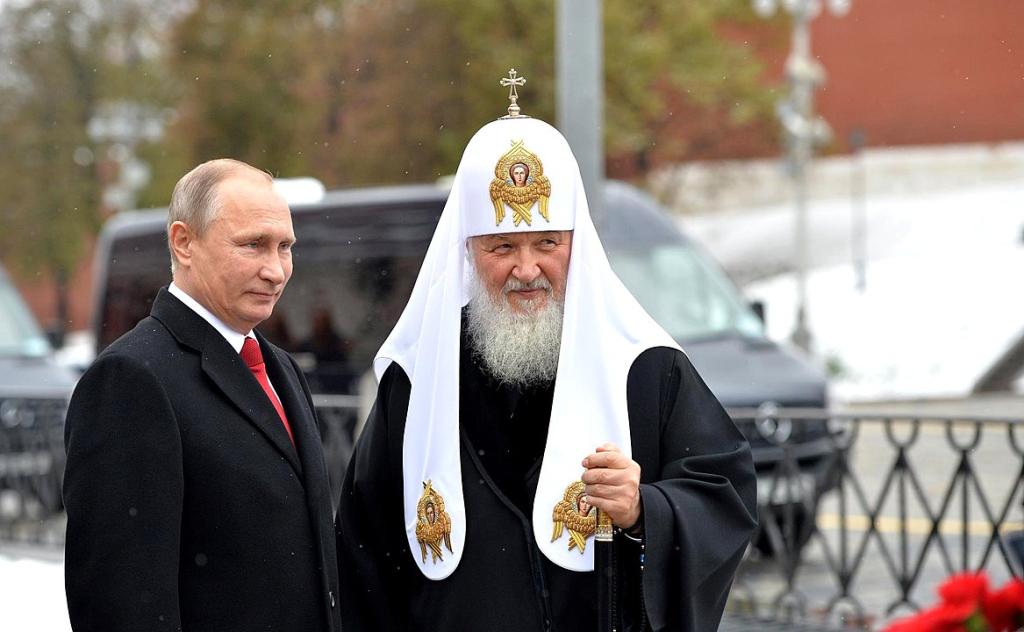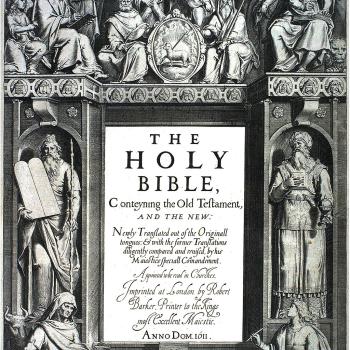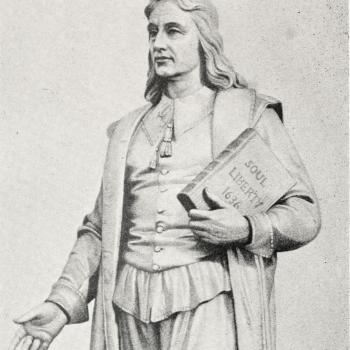Every day since my last book came out, I’ve received an email from Google summarizing new mentions of Charles Lindbergh. Most of those alerts flag “this day in history” items, obituaries (“______ was eight years old when Lindbergh flew the Atlantic”), and ongoing debates about renaming schools, parks, roads, and other sites commemorating a white supremacist and anti-Semite. But in the last two months, I’ve started to see a new wave of Lindbergh mentions: those connecting his opposition to American intervention in World War II to the tepid response of some conservatives to the Russian invasion of Ukraine.
“America was also divided at the start of World War II,” wrote NorthJersey.com columnist Jim Beckerman on February 25th. “Back then, we came together. Could we now?” He wasn’t sure, given that “a number of right-wingers, including a certain ex-president, are more or less openly praising Russia’s leader, and arguing that the invasion of Ukraine is none of our business.” All of which sounded familiar to one of the scholars that Beckerman talked to. “If Charles Lindbergh were here today,” said political scientist Peter Woolley, “he would be an apologist for Vladimir Putin.”
Likewise, Matthew Continetti looked back to the most famous supporter of the America First movement in a recent Wall Street Journal essay adapted from his new book on the history of conservatism in America. Calling Lindbergh “an aspirational figure whose triumphal (and, after the murder of his child, tragic) story commanded respect,” Continetti explains why the pilot was “an icon to noninterventionists, especially in the Midwest, but a villain elsewhere.” Rather than “condemn the moral depravity of the Nazis,” Lindbergh “drew a moral equivalence between the governments of the U.K. and Nazi Germany” and scapegoated Jewish and other supporters of U.S. intervention in WWII, making him a particularly prominent “symbol of an unfeeling and sinister isolationism” that has regained strength in the Trump era.
A couple days later, former Trump administration official Jeffrey Scott Shapiro took to the same pages to warn that the fact that “so many leading America-firsters are parroting the Kremlin’s narrative suggests the movement has taken a dangerous turn. The reasonable goal of reducing military adventurism has regressed toward extreme isolationism, producing a self-described antiwar movement that preaches peace while callously ignoring war crimes.”
I think it may be even more dangerous than that, precisely because there’s a potential analogy here in 2022 with the most deeply problematic part of Lindbergh’s argument against war in 1939.
Lindbergh’s career as an anti-interventionist began over a year before the America First Committee organized. Having lived in European exile for three years to escape the extraordinary press scrutiny to which he and his family were subjected after the kidnapping and murder of his first-born son, Lindbergh decided to return to his homeland in April 1939, hoping to keep America out of a European war that seemed inevitable.
Five months later Nazi Germany invaded Poland, provoking half-hearted declarations of war by Britain and France. At that time, American opinion about Poland mirrored American opinion today about Ukraine: horrified and willing to respond, but only indirectly. According to a Gallup poll taken that first week of September 1939, less than 10% of Americans were ready to go back to war, just over two decades removed from the experience of World War I. But the vast majority had no doubts about who was a villain and who was a victim: more than two-thirds rejected the idea of a negotiated peace if it meant that Hitler would gain any Polish territory, and 58% were already in favor of sending military supplies to the Western Allies — the same number who believed that Germany would attack the U.S. if France and Britain were defeated.
Yet when Lindbergh spoke on all three major radio networks on September 15, 1939, he denied that the U.S. had anything “to gain by taking part in another European war.” He saw no compelling security issue for a country protected from Europe by an ocean, nor was he moved by the suffering of Poles. “We must not permit our sentiment, our pity or our personal feelings of sympathy to obscure the issue,” Lindbergh chided his overly sensitive countrymen and women. Sending materiel alone would not bring victory, so the U.S. would inevitably be sucked into a needless war that would cost American lives and, perhaps, American democracy.
In 2022 or 1939 — in the shadow of Afghanistan and Iraq or of the Western Front — it’s a well-worn American argument, and one that shouldn’t be ignored. No country ought to go to war quickly, and war’s effects at home and abroad are invariably hard to foresee. And while I’d define strategic interests more broadly than the mere preservation of security from immediate attack, any American government needs to select its foreign policies in light of abilities that are always more than limited than what American exceptionalists want to admit.
For example, even if you recognize an American interest in preventing a great power from successfully invading a weaker neighbor, Joe Biden has limited tools available to stop Vladimir Putin — and Franklin D. Roosevelt had even fewer options when first faced with Adolf Hitler. In the fall of 1939, the U.S. had no way to provide meaningful material support to the Poles — only their supposed allies in London and Paris, who looked to their own defense that fall and hesitated even to lob shells into Germany. And there was no chance of effective economic sanctions against Germany at a time when Hitler had cultivated the support not only of Italy and Japan, but the Soviet Union, which annexed the eastern half of Poland and shipped raw materials to Germany right up until June 1941.
In that sense, Lindbergh could reasonably question whether the U.S. could achieve anything like a victory without a level of direct engagement that few Americans found acceptable and for which the U.S. military was completely unprepared. But the pilot’s reasons for non-intervention ran far deeper than such reasonable objections.
In that September 1939 radio address, Lindbergh betrayed his own argument: though he insisted that what was happening in Poland was just “another European war,” he also called it “one more of those age-old quarrels within our own family of nations…” (emphasis mine). That is to say, the early days of WWII pitted one Western power (Germany) against two others (Britain and France) while yet another “family” member looked on (the United States). If the European relatives plunged themselves into “more Dark Ages,” concluded Lindbergh, it was his country’s task to stand apart and preserve Western values: “The German genius for science and organization, the English genius for government and commerce, the French genius for living and the understanding of life… Here in America they can be blended to form the greatest genius of all… This is the test before America now. This is the challenge—to carry on Western civilization.”
But he didn’t really want to stand apart, and the true implications of his argument came clearer in November, when Reader’s Digest published Lindbergh’s infamous article on “Aviation, Geography, and Race.” Though he wrote it around the same time as his initial radio address, it went much further. To Lindbergh, the U.S. shouldn’t just stay out of a war against Hitler, it should join Germany and its European rivals in preparing for a greater conflict. That passage is worth quoting at some length, precisely because it’s so appalling:
…while we stand poised for battle, Asia presses towards us on the Russian border, all foreign races stir restlessly. It is time to turn from our quarrels and to build our White ramparts again. This alliance with foreign races means nothing but death to us. It is our turn to guard our heritage from Mongol and Persian and Moor, before we become engulfed in a limitless foreign sea. Our civilization depends on a united strength among ourselves; on a strength too great for foreign armies to challenge; on a Western wall of race and arms which can hold back either a Genghis Khan or the infiltration of inferior blood; on an English fleet, a German air force, a French army, an American nation, standing together as guardians of our common heritage, sharing strength, dividing influence.
Our civilization depends on peace among Western nations, and therefore on united strength, for Peace is a virgin who dare not show her face without Strength, her father, for protection. We can have peace and security only so long as we band together to preserve that most priceless possession, our inheritance of European blood, only so long as we guard ourselves against attack by foreign armies and dilution by foreign races.
Charles Lindbergh was no grand strategist dispassionately evaluating the relationship between intentions and capabilities. He was not even a traditional isolationist, insistent that the New World stay unsullied by the self-destructive intrigues of the Old.
On the contrary, he wanted peace in 1939 precisely so that the white majority of the United States could join Europe’s empires in preparing to fight a racial struggle for the future of human civilization — not just a war of arms against an “Asiatic” threat like Russia or Japan, but a war of eugenics against “the infiltration of inferior blood.”

Lindbergh’s article was published two months after the German invasion of Poland, so as we near the two-month anniversary of the Russian invasion of Ukraine, consider this analogy:
The case of Charles Lindbergh points to a particularly insidious view of America’s relationship to the world: one understood not in terms of an idealist’s aspirations for cooperative striving toward universal values of peace, freedom, and justice, nor in terms of a realist’s balancing of national security interests against wariness of military adventurism, but as a more atavistic imperative to take sides — even with autocrats — in a clash of civilizations. If not Lindbergh’s struggle of blood and race, at least one of culture and religion.
And if Stalinist Russia was for Lindbergh a civilizational threat, Putinist Russia is, to some Americans, quite the opposite.
In the years before the invasion of Ukraine, Vladimir Putin’s regime impressed no small number of American conservatives as a potential ally in a global culture war against social liberals, secular progressives, and gay rights activists. “Putin ain’t woke,” crowed Steve Bannon the day of the invasion. “He’s anti-woke.” Others saw his land as a model of Christian nationalism; even after the invasion, Delaware Senate candidate Lauren Witzke said that she identified “more with Putin’s Christian values than I do with Joe Biden.” Historian Daniel Gullotta and political scientist James Patterson cited that comment in an op-ed concluding that such Christian conservatives see Putin as a Constantine figure: not a war criminal who deserves the world’s censure, but a powerful partner in what Putin’s chief religious supporter has called “not a physical but a metaphysical struggle” against the West’s moral decadence.
Even after the Russian invasion drew rebukes from evangelical politicians like Mike Pence, some MAGA conservatives continued to act as what the former vice president called “Putin apologists,” only too happy to recycle false claims from the Kremlin. For the most part, those views have been drowned out by the relatively strong bipartisan consensus in favor of defending Ukraine. But as the war drags on, I expect that we’ll hear more and more from those on the American right who aren’t just grudgingly willing to concede Ukraine to a Russian sphere of influence, but who truly see Putin as what Charles Lindbergh would have called a fellow “guardian of our common heritage.”












